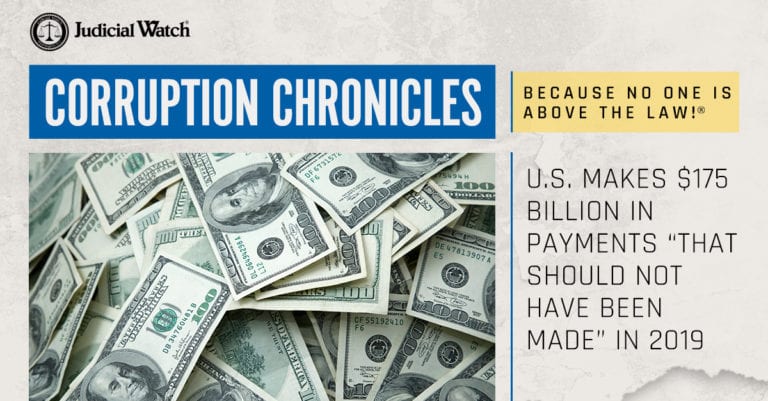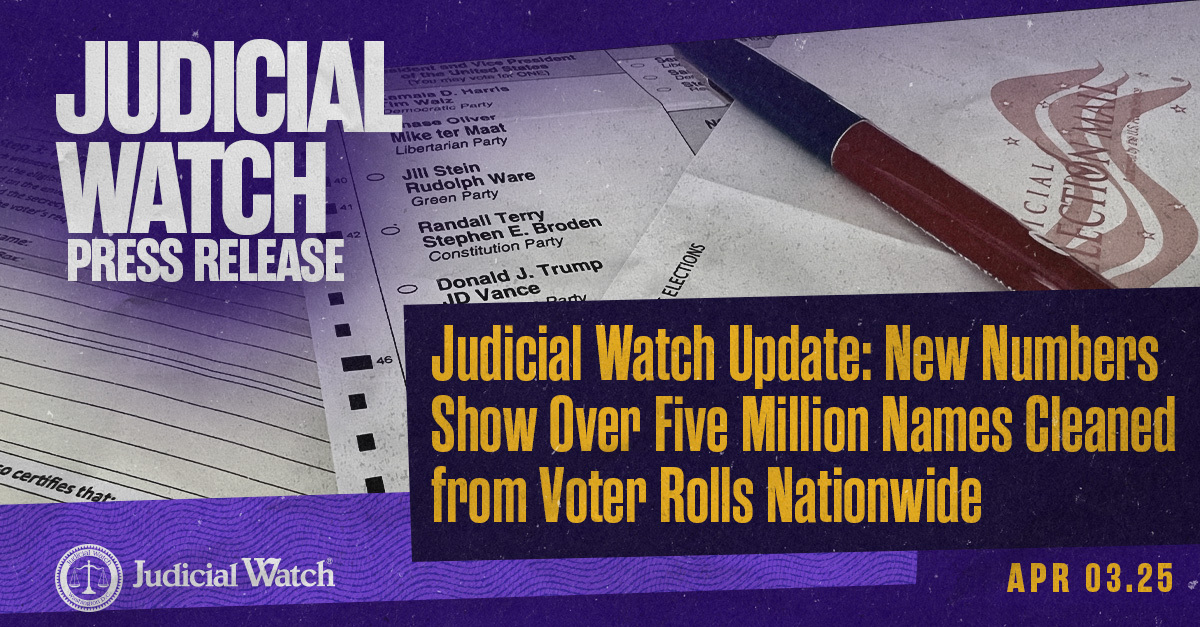
U.S. Makes $175 Billion in Payments “That Should Not Have Been Made” in 2019

Though federal law forbids it, every year the U.S. government squanders huge sums of American taxpayer dollars and dismisses it matter-of-factly as a “monetary loss.” In 2019, Uncle Sam misspent an eye-popping $175 billion, a 15% increase from the previous year and the figure is likely to grow in the future. The largest chunk—$121 billion or 69%—was blown on “improper payments” in three federal programs, according a federal audit issued this month by the nonpartisan investigative arm of the U.S. Congress, the Government Accountability Office (GAO). The programs with the highest concentration of waste last year were Medicaid, Medicare and Earned Income Tax Credit.
“Improper payments—payments that should not have been made or that were made in incorrect amounts—continue to be an area of fiscal concern in the federal government,” the GAO report states. “Improper payments have been estimated to total almost $1.7 trillion government-wide from fiscal years 2003 through 2019.” The problem is so pervasive that Congress passed a law called Improper Payments Elimination and Recovery Act (IPERA) in 2010 to address the issue. Incredibly, many federal agencies don’t bother complying with the measure and the waste continues full throttle. In 2018 the government made $151 billion in improper payments, according to figures included in the GAO report. The government simply adds the numbers and reports it as “monetary loss, an amount that should not have been paid and in theory should or could be recovered,” according to congressional investigators.
There is no end in sight to the problem because around half of the federal agencies involved are noncompliant with IPERA, which requires agency heads to review and identify programs and activities that may be susceptible to significant improper payments. The law also demands that they publish and meet annual targets for improper payment reduction and accurately report in a timely manner all improper payments. Instead, Congressional investigators found that individual agency watchdogs discovered 21 programs were noncompliant with IPERA for each of the past three years, representing billions in improper payments. “The government’s ability to understand the full scope of its improper payments is hindered by incomplete, unreliable, or understated estimates; risk assessments that may not accurately assess the risk of improper payment; and noncompliance with criteria listed in IPERA,” the GAO writes.
Let’s examine the incredible figures considered by investigators last fiscal year. Remember, these are agencies that are reporting waste but not all are complying, so we really have no idea how much of our money the government is recklessly blowing. Medicaid, which provides around 65.7 million poor people nationwide with free medical care, doled out a whopping $57.4 billion in improper payments last year. Medicare, the government health insurance program for retired people made $46.2 billion in improper payments, the GAO found. The Earned Income Tax Credit, an Internal Revenue Service (IRS) benefit for low-income workers distributed $17.4 billion in erroneous payments last year. The Earned Income Tax Credit has long been plagued by fraud and corruption that has resulted in the loss of tens of billions of dollars. The program is rife with improper applications and fraudulent claims, according to one report that cites IRS figures showing more than 60% of overpayments are due to “manipulation of self-employed income and expenses, unqualified dependents being claimed, and misuse of single and head of household filing status.”
The GAO writes that most of the government’s improper payment estimates are related to three root causes that, frankly, most Americans may find difficult to believe. The first is insufficient documentation to determine payment accuracy. About $74.1 billion in improper payments resulted from situations where the agency lacked supporting documentation necessary to verify the accuracy of the payments. The second is administrative or process error. About $39.1 billion resulted from incorrect data entry, classifying, or processing of applications or payments. The third is the inability to authenticate eligibility. About $38 billion resulted from the agency not being able to authenticate eligibility criteria, the GAO found.
















